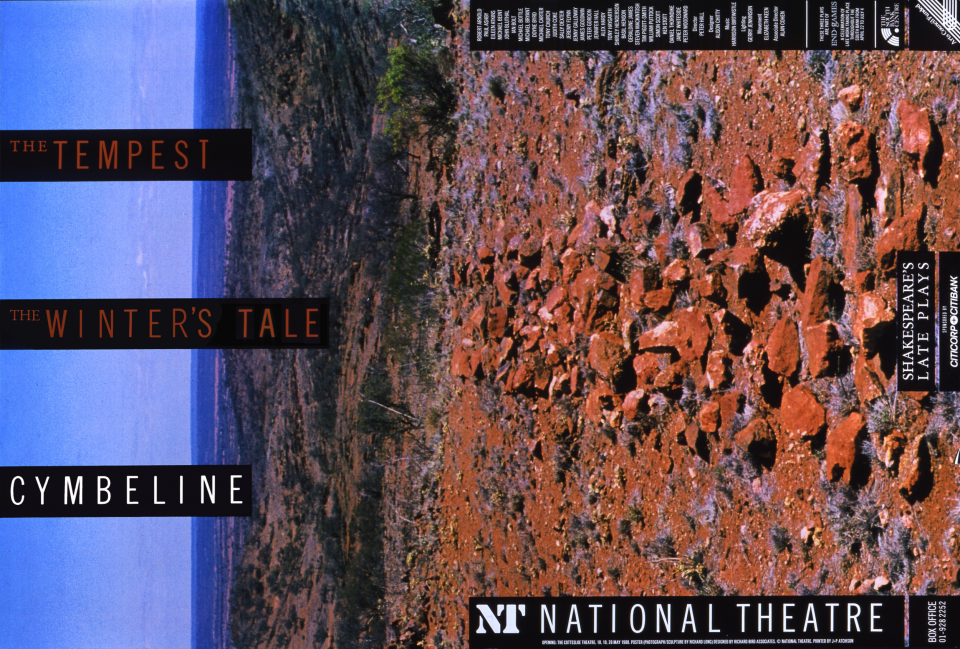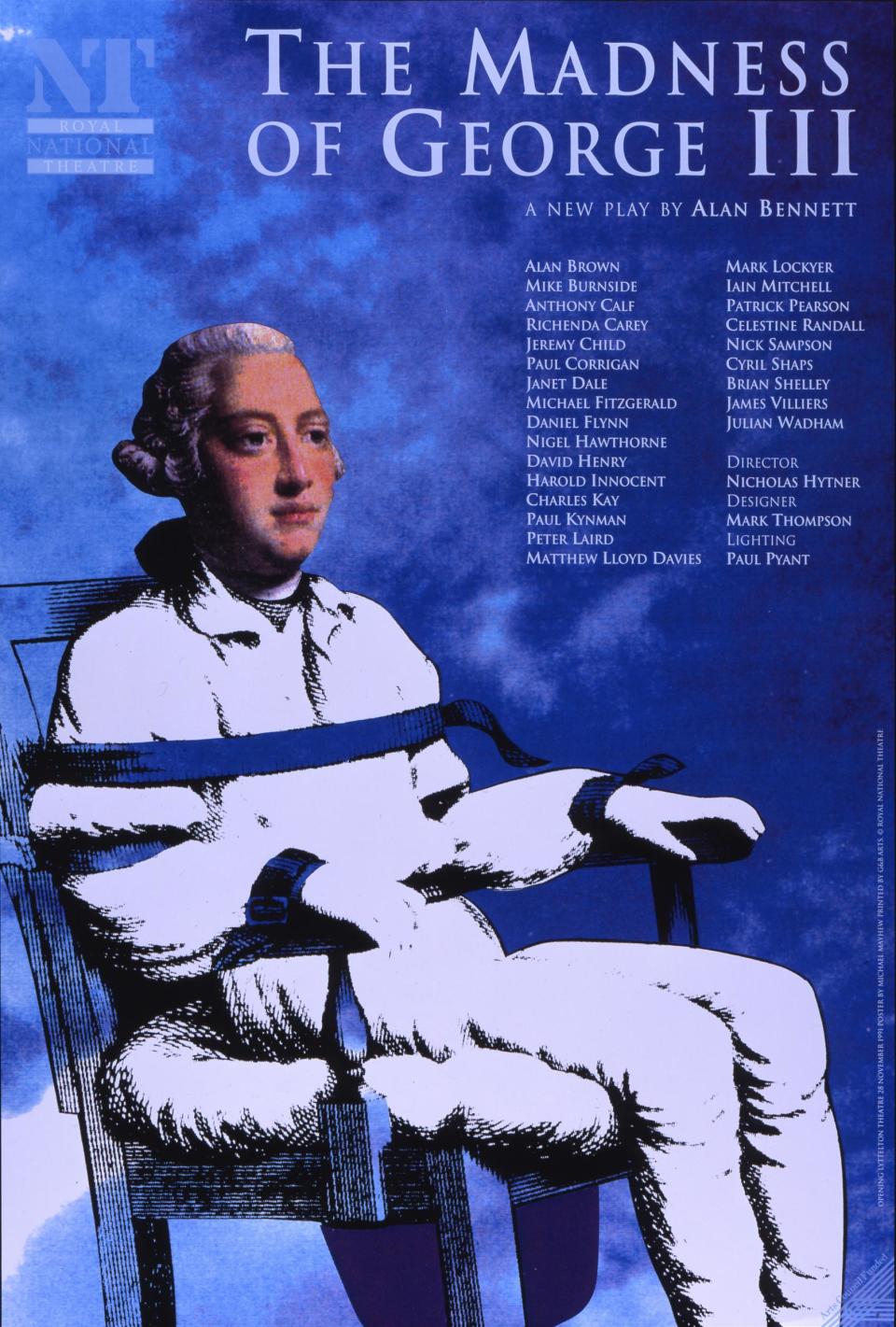Dramatic Exchanges: Adoration, apologies and outrage - the story of National Theatre in letters
Since it began life in 1963, the National Theatre has provided the full spectrum of comedy to tragedy - and that's before anyone even steps on a stage.
A new book, edited by Daniel Rosenthal, delves into an archive of letters, telegrams, postcards and notes in order to reveal the full history of the capital's biggest theatre.
From the origins of the National Theatre at the Old Vic to when it moved to Denys Lasdun's brutalist building on the Southbank in 1976, Dramatic Exchanges traces the ups and downs of artistic directors, acting stars and playwriting legends.
For a taste of the rich history, fraught relationships and artistic triumphs within the book's pages, we bring you extracted letters selected by Rosenthal. Read on to discover why John Osborne's mum was so angry in 1966 and how much Richard Bean bet on James Corden winning a Tony.
John Osborne’s A Bond Honoured opened at the Old Vic on 6 June 1966, to poor reviews, which outraged the playwright’s mother.
Nellie Osborne, telegram to John Osborne, 7 June 1966

MY DEAR SON HOW DARE THESE CRITICS PULL TO PIECES SUCH FINE WORK, FOR TEN YEARS THEY HAVE INSULTED YOUR ART IN THE THEATRE, TO ME THEY JUST SMELL, I HATE THEM, KEEP UP YOUR COURAGE AND GUTS AND DON’T LET THEM HURT YOU. PLEASE FORGIVE THIS MESSAGE I AM SO MAD REALLY MAD JOHN AND SAD, KNOWING HOW KIND AND LOYAL YOU ARE TO SO MANY, HOW CRUEL CAN THESE LITTLE WEE MEN GET HOW I HATE THEM YOUR SAD MUM LOVE TO YOU BOTH.
Maggie Smith played nine leading roles for the NT from 1963 to 1966. When she took an extended break from the Company, Olivier programmed Congreve’s comedy The Way of the World (1700), and gave Geraldine McEwan its leading role, Millamant.
Laurence Olivier to Maggie Smith, 29 October 1968

Darling Mageen,
I am so very sorry I have not been able to keep Millamant for you. It just fulfils the needs of the time and there just isn’t anything else that does that so well.
I do promise we shall devote all energies to building a lovely return for you and hopefully so that you will not miss that particular lady.
Please let’s see you again very soon. We love you and yours so very much.
Always your,
Larry
Smith to Olivier, 2 November 1968
Dear Larry,
What on earth do you expect me to say?
I am absolutely heartbroken by your decision but what can I do? You must know that I have now no chance at all to play the one part you have always told me I should.
I wish I could accept your reasoning but I cannot even do that – there must be some play you could do.
Well, what’s the point of trying to tell you my feelings. They obviously count for so very little.
It was nice of you to say you will devote your energies to my return but really I do not think it would be wise of me to believe that either.
Margaret
Smith did return to the NT, as Hedda Gabler, in 1970. She starred as Millamant in Ontario in 1976, and in Chichester and London in 1984.
Peter Hall succeeded Olivier as NT Director in 1973. In 1976, a few months after the National moved into its new, three-theatre base beside Waterloo Bridge, Howard Brenton’s Weapons of Happiness, which dramatises a strike in a south London crisp factory, opened at the Lyttelton.
Howard Brenton to Peter Hall, 16 December 1976

Dear Peter,
The Evening Standard has decided to give the best new play award this year to Weapons of Happiness. It’s a secret, so please do keep it to yourself, Peter, until it’s announced on February 2nd. But, in these crabbed paranoid times, let’s for once thump on the ceiling and congratulate ourselves, eh?
Best wishes,
Howard
In the spring of 1988, Hall staged Cymbeline, The Tempest and The Winter’s Tale in the Cottesloe. On 17 April, a few days before Cymbeline’s first scheduled preview, Hall sacked Sarah Miles as Innogen, and replaced her with Geraldine James. Miles was married to the Oscar-winning screenwriter and playwright Robert Bolt.
Robert Bolt to Peter Hall, 18 April 1988

Dear Peter,
Yesterday morning I wrote you a letter, which congratulated you on Sarah’s performance, first seen by me the evening before. Sarah says that you will think I wrote it after yesterday’s bombshell, I didn’t think you would, but it did show what a vast difference you and I think about her performance. Yours, of course, is the thing that matters.
But to hire a star, whose work you knew, or ought to have known, engage her in publicity, continue her working hard on your notes, tell her that she was getting better, tell her that her verse was impeccable, up to the point when there was only one run-through to go before the technical run-throughs, and then quite simply sack her, it’s simply not on, Peter. Think what a body blow you deliver to her growing reputation.
Love,
Bob
Hall to Bolt, 19 April 1988
Dear Bob,
I know what I have done and I wish fervently that I had not had to do it.
Sarah has worked hard and willingly. She had made enormous progress, but I don’t believe she has shown herself capable of making the final leap and I have, I’m afraid, lost confidence in her ability to do so.
My only other alternative, which I considered carefully, was to cancel the production entirely. But I felt this was not fair to the other actors.
Believe me, Bob, I wish it had never happened. It gives me no pleasure or satisfaction to have had to cause so much unhappiness.
Ever,
Peter
In 1990, Judi Dench, her husband, Michael Williams, and their daughter, Finty, watched David Hare’s play about Anglican clergymen, Racing Demon, in the Cottesloe .

Judi Dench to David Hare, March 1990
Dear David,
Mike, Fint & I saw [Racing Demon] this evening. I think it the BEST play you’ve ever written – and possibly one of the best plays we’ve ever seen. Everyone is wonderful in it – and Rich has directed it beautifully. Clever you! I feel so jealous I could SPIT. Can’t you write me a musical so that I can sit on a chair in a fur hat & nothing else and sing RUDE songs?
Devotedly –
Mike Jude & Fints
In November 1991, Alan Bennett’s The Madness of George III, which dramatises the Regency Crisis of 1788-89, opened in the Lyttelto, directed by Nicholas Hytner. In the run-up to rehearsals, Bennett had sent Hytner a revised draft, with the following covering letter.
Alan Bennett to Nicholas Hytner, 1991

Dear Nick,
Just one or two points about the text. […]
Mrs Fitzherbert [The Prince of Wales’ mistress] is unresolved (and unexplained).
Maybe she should just say ‘My function is to show that you can be passionately interested in interior decoration, curtains, furnishing etc. without being a RAGING NANCY!’ A propos of which the E. Standard has been having another go at me. I’m described as ‘the virile playwright’.
Love,
Alan
Bennett to Richard Eyre (NT Director), 19 June 1992
Dear Richard,
I saw in the paper George III was playing to 99% capacity. Typically I started worrying about the other 1%.
Love,
Alan
In 2011, Richard Bean’s One Man, Two Guvnors opened in the Lyttelton. This riotous comedy is set in Brighton in 1963, and starred James Corden as Francis Henshall, a Londoner who has escapades involving copious slapstick.
James Corden, email to Richard Bean, 6 July 2011

I’m loving it Richard, every single night. I will never be able to thank you enough for this part. The only time it isn’t fun is five minutes before and 20 minutes after!
The knee is OK, just hurts a bit. The truth is I think I actually need to do a bit more (and when I say more, I mean y’no some) exercise in the day and I’ll be better for it.
All is good though,
Speak soon
James
Most of the original company travelled with the production to Broadway, where Corden became one of five nominees for Best Actor at the Tony Awards (announced on 10 June 2012), up against four Americans, including Philip Seymour Hoffman, as Willy Loman in Death of a Salesman.
Bean, email to Corden, 10 June 2012
I’ve got 50 quid on you. Don’t screw up.
Rx
Corden, email to Bean, 10 June 2012
I’m afraid you’ve wasted your money I think! It’s all Hoffman. People who don’t have votes seem to want me to win though!
He won.
These are edited extracts from Dramatic Exchanges: The Lives and Letters of the National Theatre, Selected and Edited by Daniel Rosenthal, published in hardback and ebook by Profile Books.

